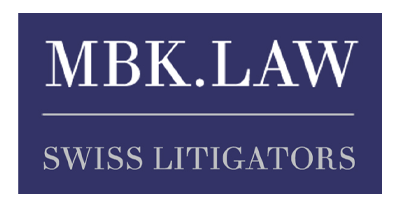Knowledge Hub
Join the Conversation!
Impartial and independent, ThoughtLeaders4 FIRE Knowledge Hub hosts cutting edge industry content and insight.
Email maddi@thoughtleaders4.com to submit content.
Compensation Orders against Company Directors: a New Way Around Limited Liability?
Date: 12/04/2020 Type: Articles Topic:The case of the Secretary of State for Business, Energy and Industrial Strategy v Kevin William Eagling [2019] EWHC 2806 (Ch) was the first brought by the Secretary of State under a regime in the Company Directors Disqualification Act 1986 providing for compensation orders. The court found in favour of the Secretary of State and made its first ever compensation order under the regime requiring a company director to provide compensation.
What is the concept of “limited liability”?
One of the biggest benefits of incorporating a business and becoming a private limited company is the protection it provides the directors and shareholders from the company’s debts. “Limited liability” affords a layer of protection between the company and its individual directors. This means the directors cannot generally be held personally responsible if the company is unable to pay its debts.
However, the courts have become increasingly concerned that there should be some limit to the limited liability afforded to directors in order to ensure that business dealings remain honest. For that reason, there are certain circumstances where a court will hold the directors personally liable for the obligations of the company.
If a company is struggling and ultimately fails then the directors of the limited company will not normally be held liable for the debts of the company. However, in certain circumstances, the courts can deem one or more directors liable for the company’s debts. A common example of this is where a company has “wrongfully traded” i.e. where a director continues to enter into transactions with the knowledge that the company is insolvent.
The disqualification order regime
When a company enters into any formal insolvency regime (administration, liquidation or receivership), the office holder (official receiver, administrator, liquidator or receiver) is under a duty to scrutinise the behaviour of the company’s director(s) and report to the Secretary of State for Business, Energy and Industrial Strategy. If it appears that the conduct of a director makes them unfit to be concerned in the management of a company, then disqualification action might be brought against said director under the Company Directors Disqualification Act 1986 (“the Act”) to prevent them from acting as director or being involved in the formation, marketing or running of a company for up to 15 years. Unfit conduct might include misappropriating company funds, allowing a company to continue trading when it can’t pay its debts, or not keeping proper company accounting records. A director can defend disqualification proceedings if they refute the allegations or can choose to enter into an agreement to give a ‘disqualification undertaking’, in effect, voluntarily disqualifying themselves from acting as a director.
The main purpose of the disqualification regime is to protect the market from the acts of directors whose conduct falls below expected standards. What the regime failed to do was compensate the victims who had suffered loss as a result of such conduct. Therefore, in July 2013, the Department for Business Innovation & Skills (as it was then known), in order to improve confidence in the insolvency process, first explored giving the court power to make an order compelling a director to financially compensate creditors at the same time as making a disqualification order or accepting a disqualification undertaking. As a result, the Act was amended in 2015 to include new provisions which give the Secretary of State the power to apply for a compensation order against a director to (a) pay an amount to the Secretary of State for the benefit of creditors/classes of creditors, and/or (b) make a contribution to the assets of the company.
In making the claim for a compensation order and considering whether it is in the public interest to do so, the Secretary of State must have regard to the amount of loss caused, the nature of the director’s conduct and whether a person has already made a financial contribution to compensate for that conduct.
Secretary of State for Business, Energy and Industrial Strategy v Kevin William Eagling – the brief facts
Noble Vintners Limited (“the Company”) traded as a wine broker, dealing in stocks of the most renowned wines. There were three aspects to the Company’s business: it bought stock which it then sold to its clients (usually high net-worth individuals buying for investment purposes); it bought particular wines for clients; and it sold wine on behalf of clients.
The Company was incorporated in June 2011. From November 2015 Mr Eagling was sole director and sole shareholder. On 22 June 2017 the Company entered creditors’ voluntary liquidation with an estimated deficiency of £1,678,614.
On 19 December 2018, the Secretary of State issued proceedings against Mr Eagling seeking his disqualification as a director for 15 years, under section 6 of the Act, and a compensation order. The Secretary of State alleged that between 2 November 2015 and 18 October 2016, Mr Eagling misappropriated funds totalling £559,484 from the Company. Specifically, Mr Eagling was alleged to have recommended to clients that they purchase wine but although they sent payments to the Company, the wine was never received by them; similarly, he recommended that clients sell wine through the Company but they did not receive the proceeds of the sale.
The Judge found that at the time when the Company had very little prospect of meeting its substantial debts it continued to incur obligations, including those generated by Mr Eagling’s recommendations to clients to buy or sell wine, which it very largely did not meet. Instead, during the period between 2 November 2015 and 18 October 2016, the Company paid almost all of its income to a company controlled by Mr Eagling, without any commercial justification. As sole director, the Company acted through Mr Eagling and he was responsible for all of this. Therefore, in May 2019 the court disqualified Mr Eagling from acting as a director, or being involved in the formation, marketing or running, of any company registered in the UK, or an overseas company that has connections with the UK, for the maximum period of 15 years. The Judge also made a compensation order requiring Mr Eagling personally to pay compensation to the Company’s clients in the full amount sought, £559,484.
Commentary
Compensation orders represent a significant tool to assist in getting around limited liability in circumstances where directors have acted in a manner that amounts to serious misconduct. However, disgruntled shareholders and creditors might wish that the right to apply for a compensation order were available to them, not just to the Secretary of State (as is currently the case).
What is not yet known is what the ramifications might be for those directors who fail to satisfy compensation orders made against them, particularly those directors who have already been disqualified for the maximum period allowed under the Act (as in this case).
Directors who are faced with the prospect of disqualification and/or compensation proceedings should seek immediate legal advice. There are various issues to consider – should you fight the disqualification proceedings or give a disqualification undertaking? Will giving an undertaking avoid a compensation order? Can you offer to pay money to compensate creditors in the hope that will be for a lower sum than a compensation order? As always, the answers to these questions depend on the facts specific to each case.
If you have any concerns or require further information about directors’ duties and their potential implications, please contact Kingsley Napley's directors and officers team.
Author
Katie Allard - Kingsley Napley
Our FIRE Corporate Partners

































